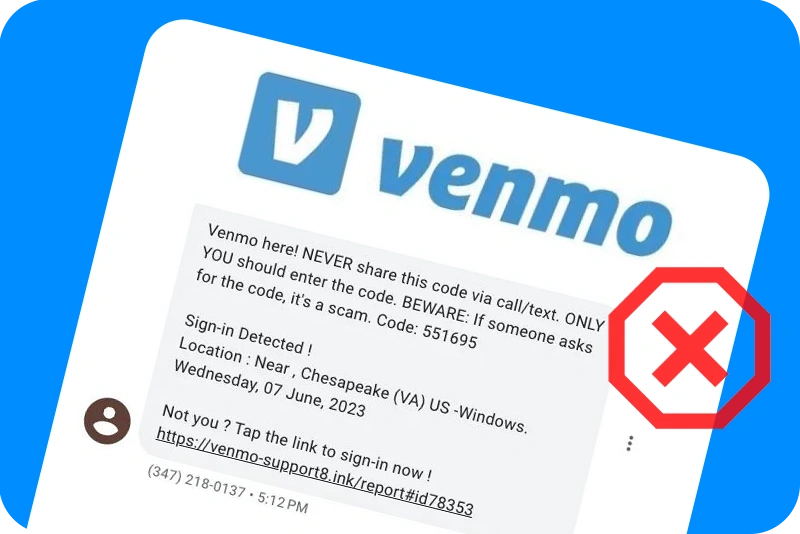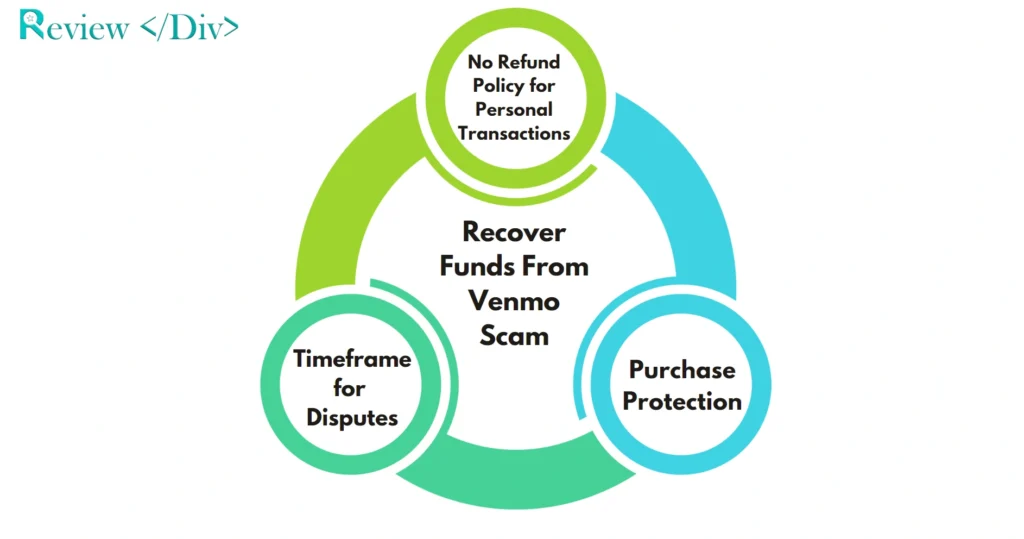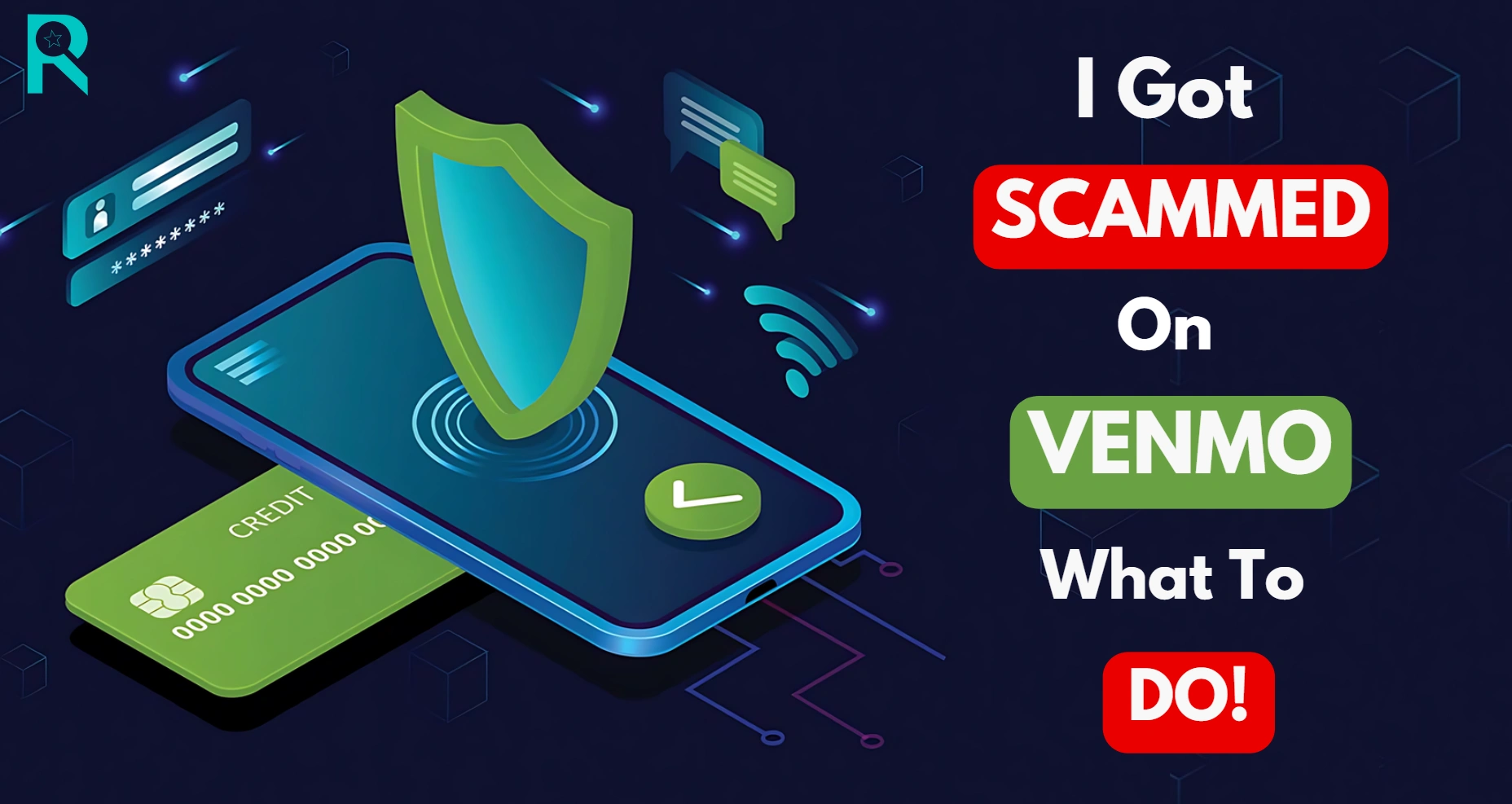Venmo has become one of the most popular digital payment platforms, Whether you want to split a bill with friends or pay for a service, Venmo helps to easily transfer money instantly. However, the platform’s convenience has also made it an attractive target for scammers who prey on unsuspecting users.
If you’ve been scammed on Venmo, it’s stressful and confusing. This guide helps you understand the steps, you should take to recover your money, report the scam, and protect yourself from future incidents.
What Is Venmo Scam?
A Venmo scam refers to fraudulent activities where scammers use the platform to mislead users into sending them money or sharing information. These scams can take various forms including impersonation scams, where the scammer pretends to be a friend or family member in need of urgent financial help.
It also includes phishing, where victims are tricked into providing their Venmo login credentials through fake emails or websites that imitate Venmo’s official appearance.
Other common scams include fake sales, where scammers offer goods or services at attractive prices but disappear once payment is completed, and job scams, where victims are asked to pay fees upfront for non-existent rewards or job opportunities.
The core strategy behind Venmo scams is social engineering, where scammers use the victim’s emotions, such as fear, urgency, or greed, to trick them into quick decisions without verifying the legitimacy of the request.
As Venmo transactions are instant and irreversible, falling for a scam can result in significant financial loss with a chance of recovering the money. Therefore, being cautious when using Venmo is essential for protecting yourself from becoming a victim.
How Does Venmo Scam Operate?
Scammers are experts at manipulating emotions and creating a false sense of urgency or security. They use tactics that play on fear, excitement, or the promise of easy rewards.
For example, a scammer might hack into a friend’s Venmo account and send you a message asking for immediate financial help, it seems like a real emergency.

Alternatively, they send you an official-looking email with the Venmo logo, and you click a link and enter your login details on a fake website.
Warning Signs To Venmo Scam
We have identified some warning signs of this scam, and you should also be aware of these signs so that you do not fall victim to it.
Unsolicited Requests for Money: Be cautious of unexpected requests for money, if they create a sense of urgency or come from someone you don’t know well. Always verify the identity of the person making the request even if the message appears to come from a friend.
Too Good to Be True Offers: If an offer seems too good, whether it’s a job offer, a sale, or a prize, always verify the legitimacy of the offer before sending any money.
Requests for Personal Information: Legitimate companies will never ask for sensitive information like your password, Social Security number, or bank details via email or text. Always verify requests through official channels such as contacting customer service directly.
What to Do If You Get Scammed on Venmo?
If you get scammed on Venmo then it’s important to act quickly. Here are the immediate steps you should take.
Document Everything: Take screenshots of the transaction any messages exchanged with the scammer, and the scammer’s profile details. This documentation is essential when reporting the scam to Venmo, your bank, and possibly law enforcement.
Change Your Password: If you suspect that your account has been compromised, change your Venmo password immediately. Check that your new password is strong and unique, combining letters, numbers, and special characters.
Enable Two-Factor Authentication: Venmo offers two-factor authentication (2FA), which requires you to enter a code sent to your phone each time you log in from a new device. Enabling 2FA adds an extra layer of security to your account.
How To Report Venmo Scam?
Once you’ve secured your account the next step is to report the scam. Here’s how you can do that.
Contact Venmo Support: Report the scam directly to Venmo through their app or website. Here’s how:
- Go to the “Me” tab in the Venmo app.
- Tap on “Transactions” and select the transaction you want to dispute.
- Tap on “Need Help?” and follow the prompts to report the issue.
Reporting the scam to Venmo is important not only for the possibility of recovering your funds but also to help prevent the scammer from targeting others.
E-mail Venmo: If you’ve experienced a phishing attempt, forward the suspicious email to [email protected]. If the scam occurred via text, send screenshots to [email protected]. This helps Venmo track and stop phishing scams.
Contact Your Bank: If your bank account is linked to Venmo then notify your bank about the scam immediately. Your bank can check your account for unauthorized transactions and may assist in freezing your account to prevent further losses.
Report to Authorities: Consider reporting the scam to the Federal Trade Commission (FTC) and your local law enforcement. The FTC collects data on scams, which helps them investigate and prevent further incidents.
How to Recover Funds Lost to a Venmo Scam?
Recovering funds after being scammed on Venmo can be difficult, but there are a few avenues you can take.

1. No Refund Policy for Personal Transactions
Venmo does not offer refunds for personal transactions, meaning if you sent money to a scammer as a personal payment, your only option is to request that the scammer return the funds.
2. Purchase Protection
If you tagged the payment as a purchase (for Goods & Services), you will be eligible for a refund through Venmo’s Purchase Protection program.
- Contact Venmo support and provide all the documentation you’ve gathered.
- Explain that the transaction was a scam and provide any evidence that supports your claim.
3. Timeframe for Disputes
Venmo requires that the operation be filed within a certain timeframe after the transaction. The sooner you report the scam, the better your chances of recovering your funds.
Conclusion
Getting scammed on Venmo can be a disturbing experience, but knowing how to respond can help you mitigate the damage and protect yourself in the future. By taking immediate action to secure your account, reporting the scam to Venmo and other relevant authorities, and adopting preventive measures, you can reduce the likelihood of falling victim again.
Always remain alert, and prioritize security when using digital payment platforms like Venmo. While recovering your funds may be difficult, taking these steps can help you safeguard your finances and prevent others from experiencing the same fate.







